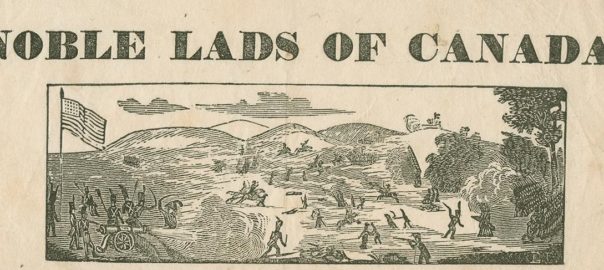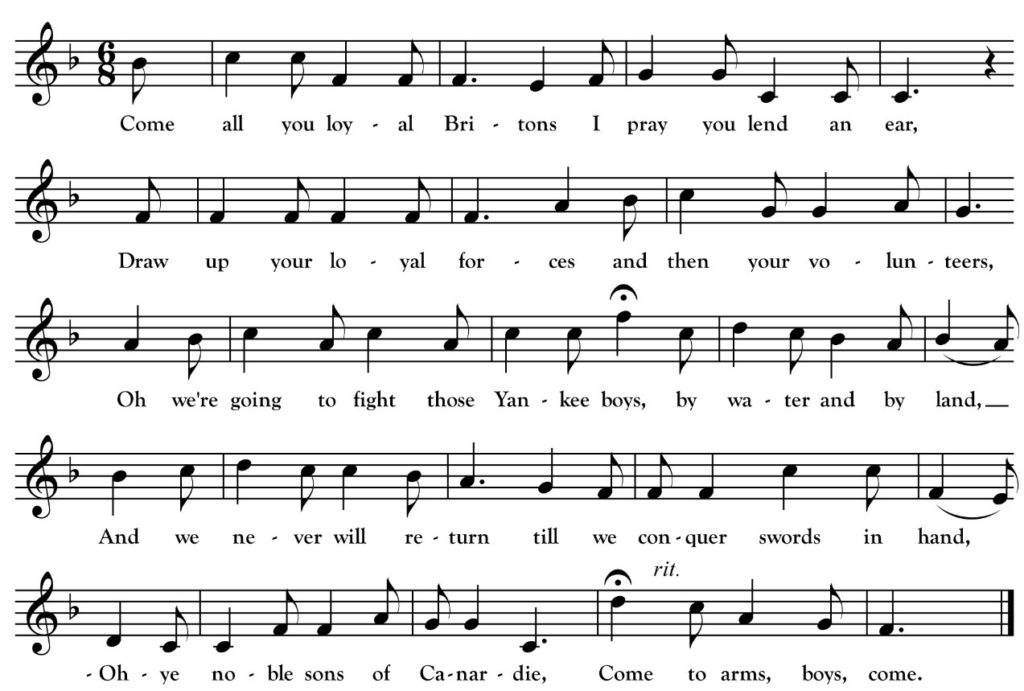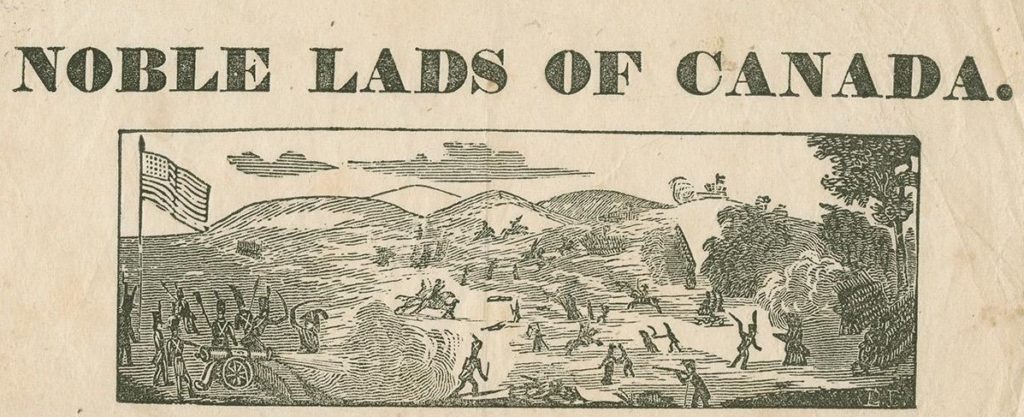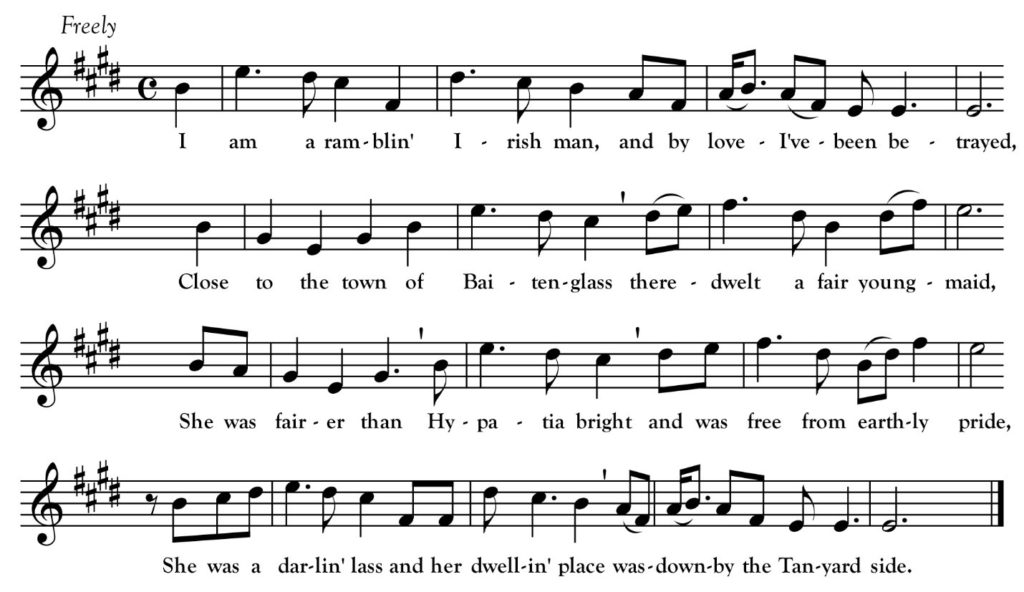Ye Noble Sons of Canardie


Come all you loyal Britons I pray you lend an ear,
Draw up your loyal forces and then your volunteers,
Oh we’re going to fight those Yankee boys, by water and by land,
And we never will return till we conquer swords in hand.
Oh you noble sons of Canardie, come to arms boys come.
O now the time has come, my boys, to cross the Yankee line,
We remember they were rebels once, and conquer’d John Burgoyne.
We’ll subdue those mighty Democrats, and pull their dwellings down,
And we’ll have the states inhabited with subjects to the crown.
Oh you noble sons of Canardie, come to arms boys come.
I’d rather fight the biggest fleet that ever crossed the seas,
Than twenty of those Yankee boys behind their stumps and trees,
For from hedges and from ditches and from every tree and stump,
You can see those sons of b—— those cursed Yankees jump.
Oh we’ve got too far from Canardie, run for life, boys, run.
O Prevost sighed aloud and to his officers did say,
The Yankee troops are hove in sight and hell will be to pay,
Shall we fight like men of courage, and do the best we can,
When we know they’ll flog us two to one, I think we’d better run.
Oh we’ve got too far from Canardie, run for life, boys, run.
The old ’76s marching forth, on crutches they do lean,
With their rifles leveled at us with their specs they take good aim,
And you know there’s no retreat for those who’d rather die than run,
Make no doubt that these are those that conquered John Burgoyne.
Oh we’ve got too far from Canardie, run for life, boys, run.
We’ve reached the British ground, my boys, we’ll have a day of rest,
I wish my soul that I could say ‘twould be a day of mirth,
But I’ve left so many troops behind, it causes me to mourn,
If ever I fight the Yankees more, I’ll surely stay at home.
Now we’ve got back to Canardie, stay at home, boys, stay.
A health to all the British troops, likewise general Prevost,
A health to all our families, and the girls that we love most,
To MacDonough and Macomb, and to every Yankee boy,
Now boys fill up your tumblers for I never was so dry.
Now we’ve got back to Canardie, stay at home, boys, stay.
For this month’s song, we revisit the repertoire of the Phillips family of Chamberlain, Minnesota for a song about the Battle of Plattsburg during the War of 1812. Collector Robert Winslow Gordon recorded three verses (verses 1, 3 and 5 above) from the Phillips family in September 1924. Interestingly, he chose to record just one verse a-piece from brothers Reuben and Seymore and Reuben’s son Israel. The melody above is my transcription based on the three recordings which are quite similar in melody. Verses 2, 4, 6 and 7 above were taken from an 18 verse printed broadside of the song.
“Canardie” is a poetic reworking of “Canada” and the Phillips family had a close connection to the British invasion, via Canada, of northern New York during the War of 1812. According to Early History of the Town of Hopkinton [NY], Seymour and Reuben’s maternal grandfather Samuel Goodell (1778-1822) was briefly taken prisoner during a British Army raid on Hopkinton, New York’s ample flour supply in February 1814. The nearby Battle of Plattsburgh described in the song proved to be the decisive Yankee victory in the war. The song, though told from the British perspective, is clearly a Yankee composition.
The final verse mentions the two Irish-American military leaders credited with the Plattsburgh victory: US Army Brigadier General Alexander Macomb and naval Master Commandant Thomas Macdonough. Macomb’s father was from Ballynure, County Antrim and Macdonough’s great-grandfather hailed from Leixlip, County Kildare.


